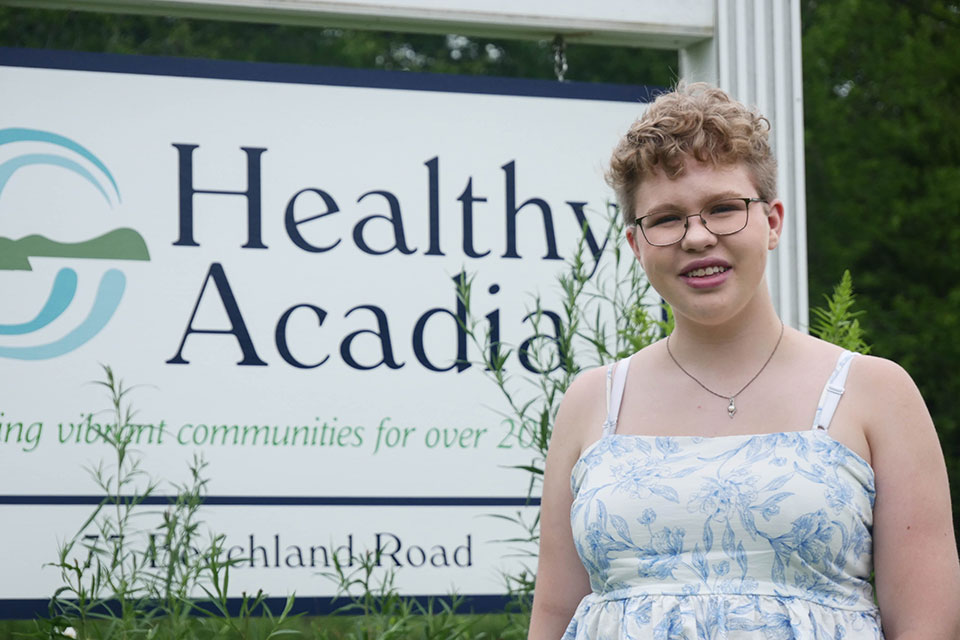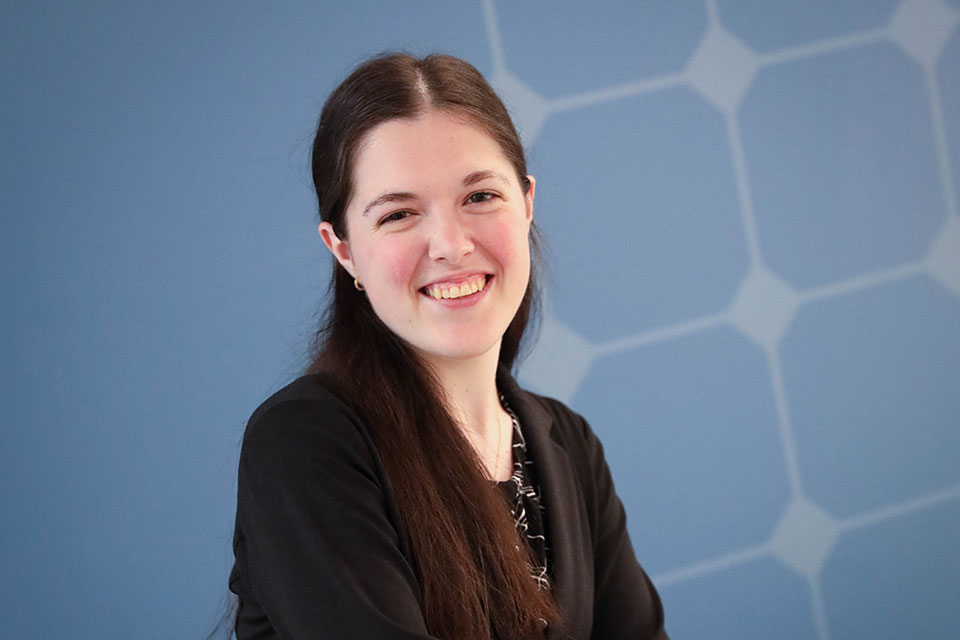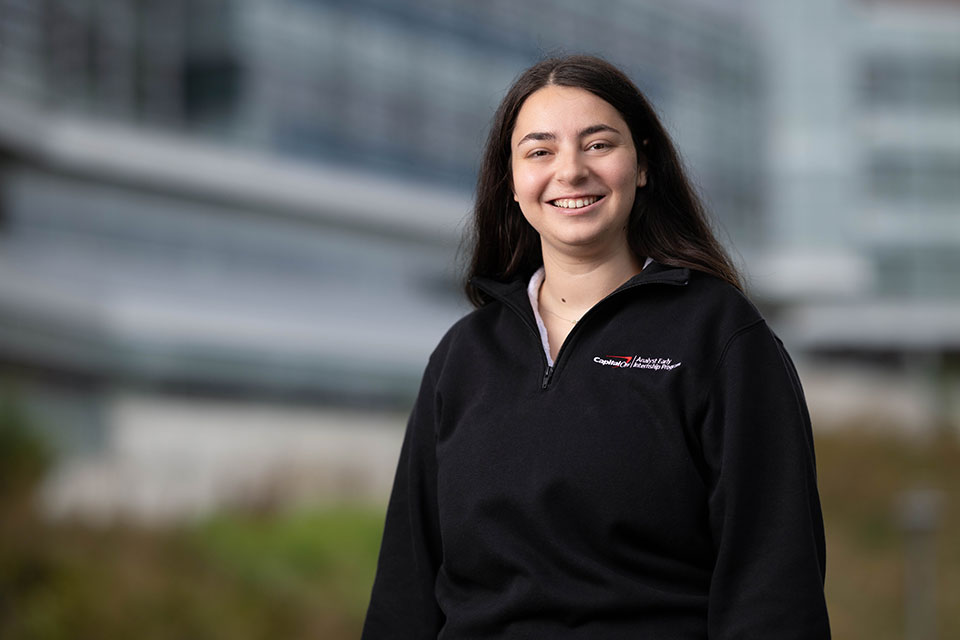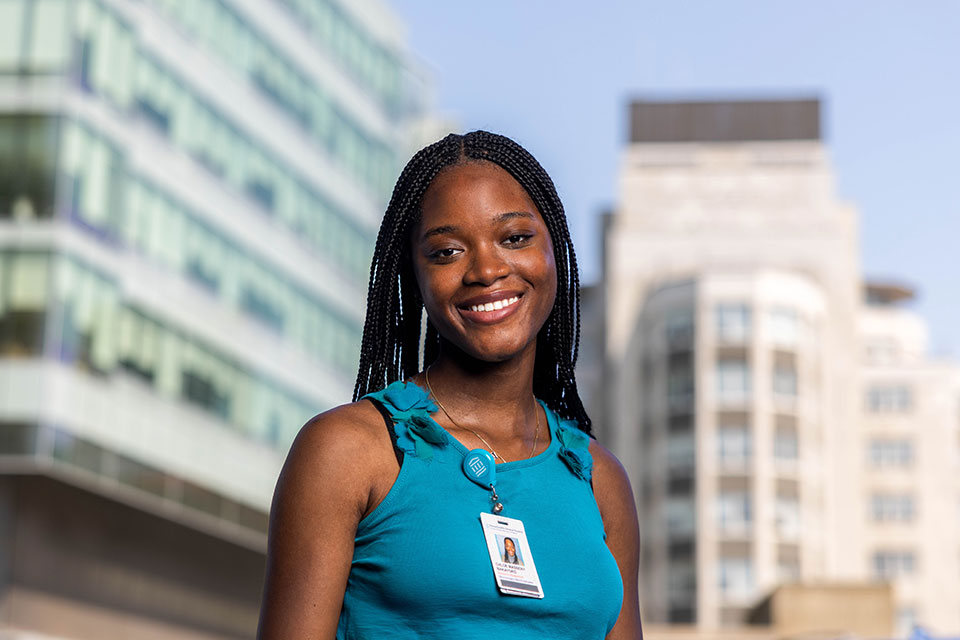The power of pride

Photo Credit: David Levin
By David Levin
October 20, 2025
Growing up in rural Maine, Elizabeth Ford ’27 watched the same troubling patterns repeat year after year. With limited health education in schools — and a lack of organized social events and meeting places for teenagers to use after hours — she often saw people her age turn to substance use as a default response to boredom and isolation. This trend seemed even more dangerous for queer students: as president of her high school’s Gay-Straight Alliance, Ford witnessed LGBTQ+ youth face harassment and rejection, which could spiral into depression, self-medication and suicide.
This past summer, Ford tested whether something as simple as a small-town Pride festival could measurably improve outcomes for her peers. Thanks to funding from Brandeis’ World of Work scholarship, she interned with Healthy Acadia, a community health organization in her hometown of Ellsworth, Maine, to tease out whether the community’s five-year-old Pride event created more tightknit social bonds among participants — and in the process, provided a support network to prevent substance use and suicide.
Ford, who double majors in Women’s, Gender and Sexuality Studies and Health: Science, Society, and Policy, feels personally invested in these sorts of community-based prevention techniques. Although plenty of research shows the benefits of strengthening community connections, she says, she doesn’t need an academic paper to know that it’s effective. She’s seen it firsthand: when her peers feel actively supported by neighbors and friends, they are less likely to turn to substances for connection or escape. “I’ve seen it change a lot of people’s lives to just feel like they belong, especially in a community that doesn’t always provide that sense of belonging,” she says. “Having someone there to support you and let you know that there are people in this community who care about you — that really makes a difference.”
As part of her summer internship at Healthy Acadia, Ford has designed a survey to measure the social impact of the event. The work involved a mix of data analysis and grassroots organizing, requiring her to split her time between computer analysis and hands-on community engagement at tabling events and local meetings. The courses she’s taken at Brandeis, she says, played a central role in helping her understand the challenges faced by her rural neighbors.
“My Health: Science, Society, and Policy classes, for sure, helped me realize that the mental health and substance abuse problems I’m seeing in my community aren’t normal, and they aren’t inevitable. It doesn’t have to be this way,” she says.
Once she graduates, Ford says she plans to return to rural Maine to continue the work she’s begun. In a place where traditional public health programs struggle to reach vulnerable residents, she’s determined to build bridges within her community — one Pride fest at a time.
Brandeis undergraduates who undertake unpaid internships in such fields as social justice, Jewish service, politics, public service and more may pursue a World of Work fellowship, a competitive grant that helps reduce financial obstacles, offered through the Hiatt Career Center.


